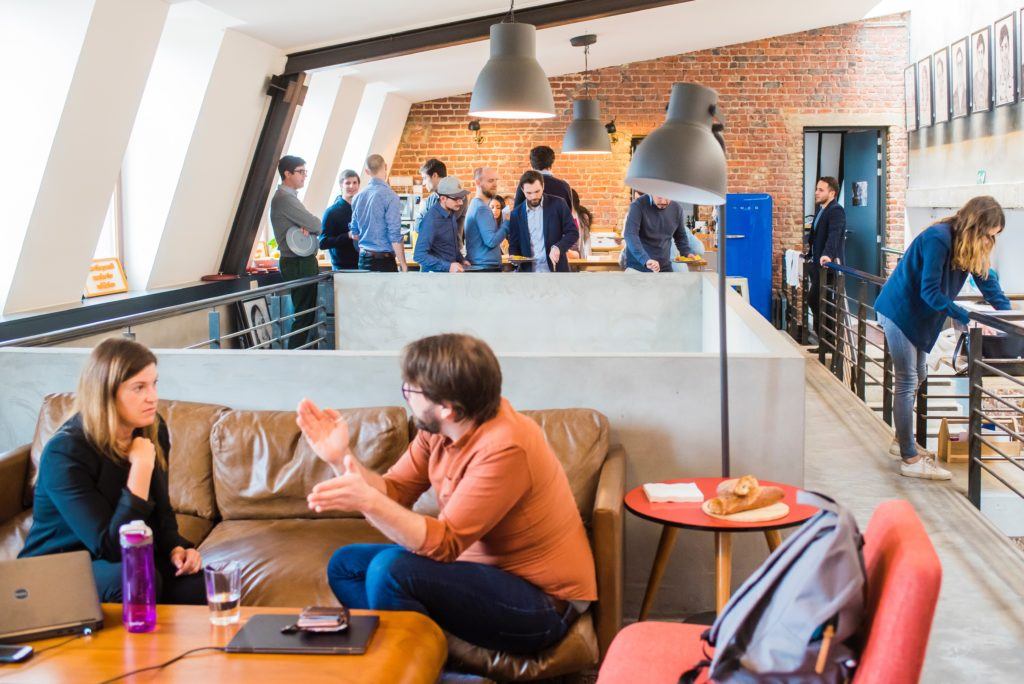Loneliness and its impact on the workplace
As many of us begin our preparations for the Christmas season, a time generally filled by parties, reunions, trips to the pub and shared meals with friends, family and work colleagues, we should ask ourselves – do we know of anyone who will be alone and will they feel lonely?
Loneliness is often confused with solitude but is not the state of physically being alone, but rather the mental anguish caused by feeling isolated that causes loneliness. This could be due to many reasons, and what might have an impact on one person may not have an impact on another. Everyone is unique.
The key drivers of loneliness are often anything that disconnects or prevents people from forming and retaining positive connections with people such as:
- Prolonged isolation
- Moving to a new area
- Moving to a new workplace
- Working from home
- Loss of a loved one
- Feeling excluded at work
Loneliness can also cause other adverse health issues such as anxiety and depression, poor concentration and sleep, and can impact on self-esteem and confidence, all have an impact at work and at home.

Did you know…
According to a recent BBC report, lockdown loneliness has reached record levels with 8% of adults in Britain today feeling always or often lonely.
This loneliness figure is at its highest since the first lockdown began in March 2020, and up significantly from the 5% reported by the ONS in June 2020, a difference of about 1.6 million people. In those figures released in June, 30.9% of all those surveyed said that loneliness had negatively affected their well-being.

This Christmas
This holiday season will surely be different around the world, with restrictions meaning that the mixing of households will be very limited, along with many of the other ways that we interact with others socially.
Those most at-risk are also the most affected as we must restrict interaction with them to prevent the transmission of COVID-19, this means less visits from carer-givers, friends and family. It’s not just the elderly who are most at risk, many people have underlying health conditions, including millions of asthmatics and diabetics in the UK alone. We all probably know someone who has spent a lot of this year “shielding”, and this Christmas is likely to remain the same for them, limiting contact from those they know and love and increasing their loneliness.

Loneliness and its impact on the workplace
This year has seen a massive downturn in business for many industries that has resulted in many being out of work, be it due to redundancies, or temporarily being placed on furlough. Latest figures show 9.6 million jobs are now furloughed by the UK government, and that the UK redundancy rate is at its highest since 2009. Things look unlikely to improve soon, with Chancellor Rishi Sunak imposing a pay freeze on 1.3m public sector jobs, and warning that unemployment could reach 2.6m next year.
With all industries affected by the pandemic, workplaces around the world have had to adapt dramatically. In the UK all employers have been instructed to make adjustments where reasonable, whether it be to socially distance or allow working from home. 24% of workers in businesses still trading now work remotely, according to October figures compiled by the ONS. The UK government has advised that this will continue if possible until at least April 2021.
These images capture what pre-covid working looked like – socialising with colleagues in the office has now largely disappeared – for the time being at least.
It’s no surprise then, that loneliness is on the increase. Many people have lost a combination of their social life, their income (often used to fund social events) and their motivation to get up and go about their day. It’s also important to recognise that for many, going to work is the only place where they encounter social interaction, bringing much needed routine, job satisfaction and in turn happiness.
For those working from home, it is often an entirely new experience, and the benefits and drawbacks are not well researched. The benefits of remote working are obvious in disease prevention, zero commuting and less environmental impact for businesses, but the drawbacks are often harder to spot. When we speak to our clients and their teams, a common issue raised is that people miss the social aspect of working in an office, with many feeling that it’s harder to form and build new working relationships as they could before. Not going to work coupled with COVID restrictions means that opportunities to socialise with colleagues are also gone.
These social activities help people to make friends and allies, building strong relationships across the business not just those who they have day to day contact with. People with friends at work are generally less lonely and are happier and more productive.

So how can you help?
Here are my three top tips to help reduce loneliness at work:
- Regular contact: Make sure you are maintaining regular contact with your team to reduce loneliness at work. Consider all types of contact available to you, from video conferencing to phone calls, Teams, Slack and email. Recognise and adapt to what works best for you and your team, everyone is different.
- Not just about work: How well do you know the individuals within your team? Challenge yourself to make sure you’re not just checking that your team’s work is going well, but that your team is doing well generally. If you can’t think of anything more to ask them perhaps it is time to learn more – ask your team questions and really listen to the answers so you can understand more and learn what motivates and interests your people inside and outside of work.
- Don’t forget to look after yourself: It is also extremely important that we take the time to look after ourselves, the well known saying “it’s lonely at the top” often rings true. Those at the top are generally the most isolated, and this can make forming friendships difficult. So take the time to recognise the need to look after yourself, through forming support networks (at work and out of work) or partnering with a mentor. Knowing that you are not alone will help you navigate through this challenging time.
Doing good – feels good.
I met someone recently who found a bunch of flowers on a bench with a note saying:-
“Dear Stranger – please enjoy these flowers – they are for you”
She was so touched by this that she left a bunch of flowers with a similar message on a bench in the park. I’ve spoken to several people since who have encountered similar acts of kindness.

Doing good definitely feels good, so why not spread some warmth this Christmas, whether it be writing a letter or picking up the phone to someone that you think might value a chat or be isolated and lonely.
Enjoy your Christmas break,
Thank you,
Doreen
————
Please get in touch if I can help you or your team…
Doreen Miller
Tel: +44 (0)333 900 9280
Email: [email protected]



